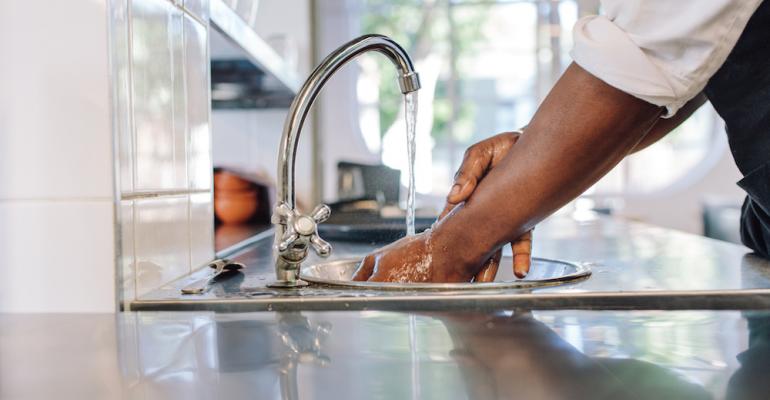Last week, an airline pilot fainted in a crowded restaurant. The emergency medical technician tending to the ill pilot pondered out loud that it could be the coronavirus.
It wasn’t. But the off-hand comment was enough to strike fear.
“I don’t think the guests panicked as much as the management,” said Roslyn Stone, chief operating officer of Zero Hour Health, a health and safety advisor to restaurant companies like Chipotle, Bloomin’ Brands and Sodexo.
Stamford, Conn.-based Zero Hour Health, which serves as the Ghostbusters-style “who you gonna call” resource in the face of potential public health outbreaks, has been getting a lot of calls in the past few weeks from restaurant operators who are worried about spread of the coronavirus in terms of both their guests and employees.
Some reports indicate guests are shying away from Chinese restaurants specifically as news of the potential pandemic makes headlines, though such fears are unfounded.
The 2019-nCoV, or coronavirus, began in Chinese city of Wuhan in the Hubei Province. As of Sunday, the Centers for Disease Control and Prevention reported 17,205 confirmed cases in China with 361 deaths. In the U.S., there are 11 confirmed cases, and no deaths have been reported.
Stone said the questions coming in from restaurant operators have ranged from whether to allow a worker who had recently returned from a trip to China back on the job, to what the best sanitizer might be for killing the virus.
Stone said one restaurant had a large party of Asian guests booked, but some members of the party canceled and blamed a coronavirus quarantine, though others in the party still wanted to show for the event.
“But the restaurant hesitated,” said Stone. “They wanted to know, ‘Should we serve them?’”
The answer, by the way, was yes, said Stone, who followed up with a health dose of perspective.
“We have 100% faith in the CDC’s screening process and people should have no worries about serving” the general public, said Stone. “But we really believe [restaurant operators] should be much more concerned about the flu and norovirus today than coronavirus.”
In fact, influenza — which has sickened some 19 million Americans this season — norovirus and even Hepatitis A are far more prevalent risks for restaurant operators.
But the things restaurants should do every day to protect their workers and guests from those contagious illnesses are the same things that will protect against coronavirus:
- Hand washing with soap and water for at least 20 seconds
- Workers should not work when they’re sick
- Bathrooms should be kept clean — especially the key touchpoints, like the toilet, the stall, the sink and door knob.
The good news is that it appears the coronavirus is not difficult to kill. Stone recommends using any sanitizer approved by the Environmental Protection Agency for foodservice settings will do the trick.
One restaurant operator in Arizona, where there is a case of coronavirus, asked if it was safe for table linens to be cleaned in the same facility as hospital linens, for example. (Yes, said Stone, the hot temperatures of both washer and dryer, and the sanitizer used, would kill the coronavirus.)
Stone also recommends that employers conduct wellness checks among their workers on a daily basis. If the restaurant doesn’t offer paid sick leave, other incentives can encourage workers to be honest about their health. A good manager might arrange for a sick worker to get more hours to make up for lost time after the worker is healthy, for example.
“We had one restaurant where the worker came in and just looked lousy and was immediately sent home. It turned out that worker had Hep A and his restaurant was saved because he didn’t work that day,” said Stone, noting that outbreaks of illnesses like Hep A can have disastrous effect on sales.
What’s known about the coronavirus changes daily as the outbreak progresses.
Stone said it’s not known yet, for example, how long the virus can remain stable on surfaces. Like SARS, it appears there may be a fecal-oral route of transmission, she noted, with about 10% to 20% of coronavirus sufferers reporting diarrhea at the outset.
Attorneys Nick Wegley and Joseph Hoag of Davis Wright Tremaine LLP in a legal blog last week recommended the employers monitor the CDC and World Health Organization websites for the latest information. They also recommended proactively sharing educational information about the virus with their employees, and how to prevent exposure, and, of course, to follow federal, state and local paid sick leave laws.
The CDC is recommending that travelers avoid nonessential travel to China. Employers could also require employees that travel to a high-risk area to wait a period of time — the incubation period is up to 14 days — before returning to work.
Contact Lisa Jennings at [email protected]
Follow her on Twitter: @livetodineout





